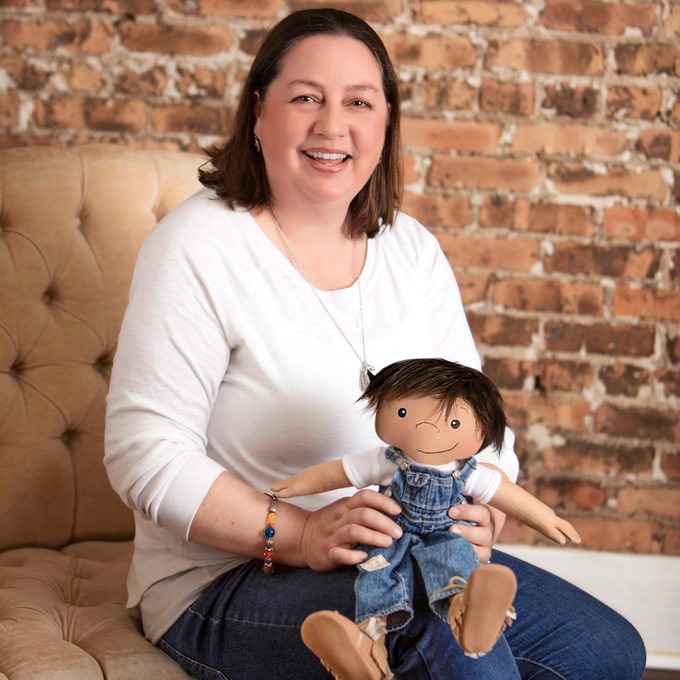This Pediatric Social Worker Creates Dolls That Represent Every Kind of Child
Updated: Sep. 01, 2023
Amy Jandrisevits believes that representation matters—and that all kids should have a doll that looks like them.

Amy Jandrisevits knows the value of a good doll. “Dolls have a power we don’t completely understand,” she told The Today Show. It’s a conclusion she came to while working as a pediatric oncology social worker using dolls to help her young clients adapt to their changing medical situations. Many of the kids could see themselves in those dolls. But for the kids missing a limb, or kids who had lost their hair, there weren’t any dolls they could relate to.
So, seven years ago, when a friend revealed that her child was transgender, Jandrisevits knew how she could help the youth through this potentially challenging period while being an LGBTQ ally herself. “It’s hard to tell a kid, ‘You are perfect the way you are,’ and to build self-esteem that way, but never offer them anything that looks like them,” she says.
More Stories About Everyday Heroes
|
Dolls that look like the kids who love them
Jandrisevits went about changing that. She crafted a doll by hand—using fabric, stitching, and markers—that resembled her friend’s child and sent it off. After the friend posted a photo online of the happy child and doll, another mother asked Jandrisevits to make a doll that looked like her baby, who was missing a leg.
Word spread, and soon Jandrisevits was making dolls for children with scars, birthmarks, facial deformities, tracheotomies—in short, a doll that looked like them. She quit her job and started a nonprofit, A Doll Like Me.
Working out of her home in Milwaukee, using photos sent by parents or caregivers, Jandrisevits spends roughly seven hours crafting each doll. A GoFundMe page helps her offset costs and allows her to donate her services. She hasn’t charged for a doll since she began her nonprofit.
In all, she’s made more than 400 dolls. The waiting list is long, but Jandrisevits is unbowed. As she explains on her GoFundMe page, “Every kid—regardless of gender, ethnicity, race, age, medical issue, or body type—should look into the sweet face of a doll and see their own.”

